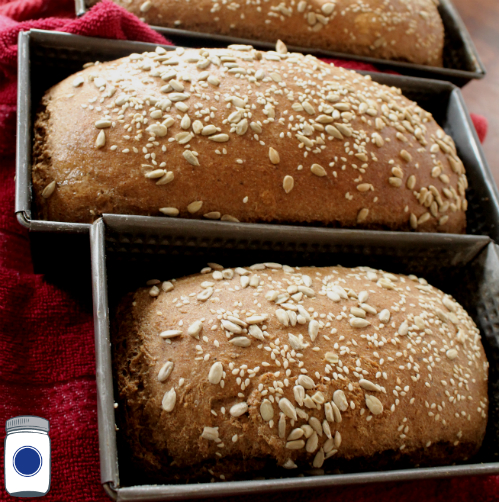
Bread Ingredients
The Role of Each Ingredient in the Final Product
I would like to explain what each of the ingredients does and how it interacts in my bread recipe. Once you understand this, it is easy to modify a recipe and make it your own. Perhaps you avoid eggs, or want a product with less gluten, etc. If you understand the interplay of these ingredients, you can make substitutions, and create your own variant.
I prefer to start with natural ingredients as much as possible. I will mill my own flour before I get started to ensure that I have the highest nutrient density in my family’s bread. Where possible, I highly recommend pastured eggs. The Omega 3 is clear to see in the bright yellow yolks—bugs and sunshine make the best eggs! Lastly, if you can use filtered water you will get better performance with your recipe ingredients (and you will not miss the Chlorine).
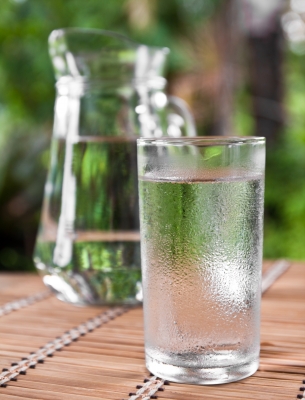
Water—Beyond joining the bread ingredients, water temperature is very important for activating yeast. You want your water to be approximately 110-155˚F. Again, filtered water is going to give the best results.
Altitude is another consideration on how much water you need to add to your recipe. Higher altitudes are dryer climates (lower boiling point for water) and will require a higher ratio of water to the dry ingredients. My recipe worked for me at both sea level in North Carolina and at 3,000 ft here in Montana . . . however I have to use a slightly higher water-to-flour ratio here at 3,000 ft. When I tried to bake bread at 7,000 ft in Colorado Springs, my low altitude recipe failed. Click here for a tested high altitude bread recipe.
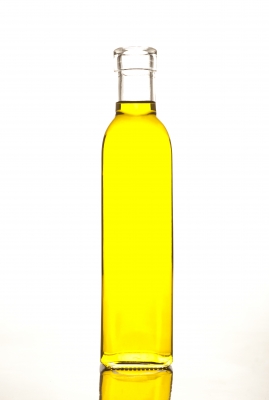
Oil—Next to flour, the quality of the oil has the most direct effect on the quality your bread, both in flavor and in nutrition. I almost exclusively use olive oil, because when you examine the finished product, you will know the recipe by ingredients used to make it. It is this fat content that makes a tender and moist baked good. The fat interacts with the strands of gluten to shorten (why we call them “shorteners”) the length of the gluten strands. This allows the gases more freedom of movement so that your baked goods are more “airy”. Egg yolks also help serve this purpose.
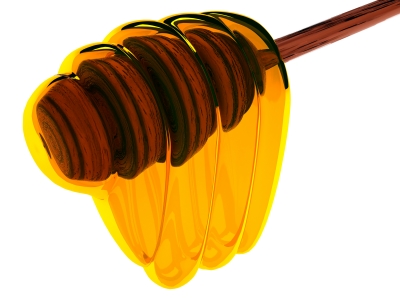
Honey—I always add the oil first so that the honey will slide out of the same measuring cup without mess or waste. Traditional cookbook recipes just use plain white sugar, which is good for plain white bread. But why, when you can take your bread from “boring” to “rich”? Honey within itself is the original antibiotic—it is extremely healthy for your immune system, it is easily digestible. Yes, it is one of the more expensive items on the ingredients list—but if you did a blind taste test between two loaves of bread, you would know which one had the honey. I have baked with a variety of sweeteners over the years, to include agave nectar, stevia, and molasses. I find that the honey has the least finicky response in the recipe and is the most versatile.
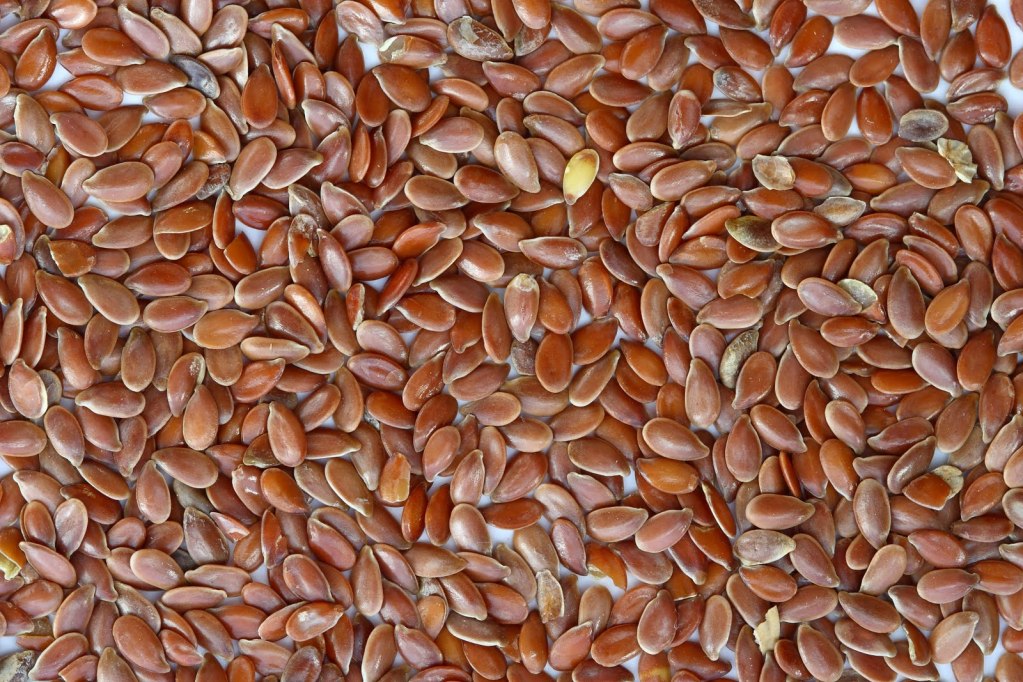
Flax Seed—this is a completely optional in my list of recipe ingredients, but one I choose for the Omega 3 fatty acids. I know that it is difficult (depending upon your geography) to fill your diet with excellent seafood. If you do not grind the flax seed, you are basically only getting the fiber and the rest of the nutrition passes through undigested. It is an excellent source of both soluble and insoluble fiber. If you grind it in a coffee grinder (you can typically pick one up cheaply for about $10.00 at a box store or pharmacy store) that you have reserved only for your herbs and seeds, you will get many precious phytochemicals in your bread. Flax, like other seed grains, has a lot of antioxidants, including lignans.
We like to use bread for sandwiches, but I commonly hear the complaint that homemade bread can crumble too much for this use. Here’s a great trick: grind your flax seed and add a tablespoon of water to it and let it sit in a bowl for a minute before adding it to your dough. It will work as a binder–just like egg–and will help hold your bread together even while giving you the great nutritional benefit of flax.
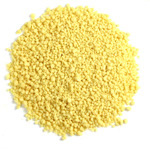
Lecithin—This one ingredient single-handedly transformed my early breads to something edible. I did not know WHY back then. Since then I have learned that it is considered a health supplement for its ability to break down fats, to improve memory, and for its promotion of healthy gall bladder functioning. It lowers cholesterol and has been linked to improving women’s reproductive health. In cooking, it is used as an emulsifier to prevent sticking (such as what you find in a cooking spray and chocolate). It provides a tenderness and (perhaps the most important thing of all), it extends the shelf life of the bread! I get several more days at room temperature out of my bread with lecithin, than the bread I have made omitting this ingredient. “Lecithin” is a generic term that can mean any emulsifier and it can be made from many sources. Although I typically avoid soy due to the GMO factor these days, I have used soy lecithin in my bread in the past. You can live without this ingredient, but its shelf life extension, texture improvement, and health benefits make this one you need to weigh personally.
Now that I’ve mentioned all the benefits and how I never baked without it in the early years, I must fess up and tell you I do not use it now. I can “read” my bread dough better with years of experience and don’t need the lecithin to help hold it together for me any more. I do have some on my shelf but I rarely reach for it now.
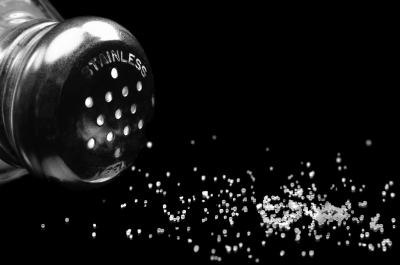
Salt—I have forgotten it more than once. Your bread is flavorless without it, entirely. I have also overdosed on it, and that makes the bread inedible at best. Salt also tempers the effect of the yeast; you usually realize you have forgotten the salt when your bread will not stop rising! Stick with sea salt if you can; it greatly enhances the flavor and nutrition of your bread. It makes it something richer.
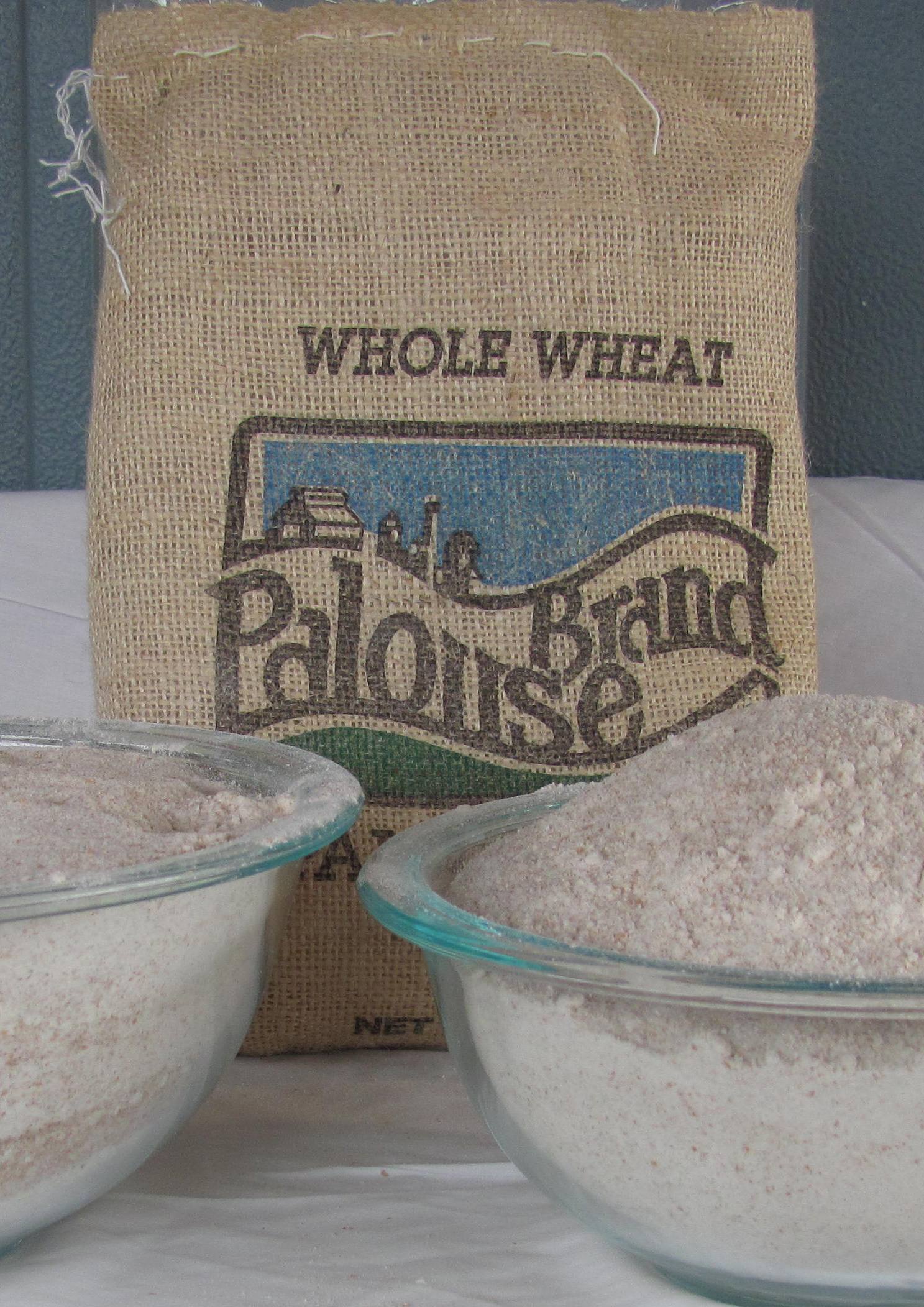
Flour—The single most important of all the ingredients, which is why I only use home-milled flours because of the marked health benefits. Store bought flours, even the gourmet ones, have had to strip some of the nutrients out in order to give it shelf life. Flours in the frozen section maintain most of the nutrition but freezer life will take its toll on that as well. Milling your own flour is easy, affordable, and the most nutrient dense way to bake bread. You can substitute bean and other flours (chickpea, for example) for some of the wheat, but do not go over 25% (you will likely need to add gluten) of the entire flour content or it will not rise properly.
Not all wheat is the same. “Hard” wheat has higher gluten and is best for yeast breads. “Soft” has lower gluten and better for lighter baking products like cake that use other rising methods, such as egg yolk, baking powder, and baking soda which also appear in quick breads.
Hard Red—this has the dark, wheaty flavor. I started with Hard White and began adding this in slowly. This can be an acquired taste, now I love it! Hard Red wheat responds very well to yeast recipe breads.
Hard White—Less wheaty flavor. Very tasty, excellent to use in yeast products.
Soft White—This is the best for quick breads, cookies, baking items with lighter structures. I sometimes mix some in with bread flours for yeast bread, but never more than 10-25% of the total flour.
Durum—This is your pasta wheat! Very tasty and you will see a difference, but in a pinch, use soft white instead.
Spelt—This is delicious and versatile wheat substitute. You can use it in both breads and quick breads. Some people who have sensitivity to wheat breads do well with this flour.
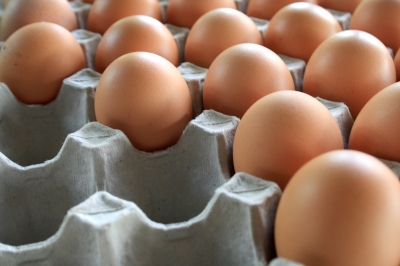
Eggs—This is the binder in your bread. I have tried to live without them and I have tasted several loaves from other bakers without it and I come to the same conclusion every time—use eggs (even better, get your own chickens)! The bread crumbles more easily without it—so if you want sandwich bread you cannot skip this step. You might want to play with how many you use. Eggs also provide another source of healthy fat for your bread, which helps lighten the overall texture.
There are likely thousands or even tens or thousands of bread recipes across the world, but each one will differ based on the ingredients. The food science is the same though, so choosing recipe ingredients that are fresh, quality and wholesome will yield a superior product. If you come across a recipe that you want to modify, you can as long as you which bread ingredients do what and why. If you come across any ingredients that I did not mention here, please leave a comment below and let me know what you like to see in your bread recipe.
Chaya
Photo Credits:
Pitcher of water http:/www.freedigitalphotos.net/images/view_photog.php?photogid=1857%22%3EImage:%20zirconicusso%20/%20FreeDigitalPhotos.net%3C/a%3E%3C/p%3E
Oil http:/www.freedigitalphotos.net/images/view_photog.php?photogid=681%22%3EImage:%20m_bartosch%20/%20FreeDigitalPhotos.net%3C/a%3E%3C/p%3E
Honey http:/www.freedigitalphotos.net/images/view_photog.php?photogid=851%22%3EImage:%20Danilo%20Rizzuti%20/%20FreeDigitalPhotos.net%3C/a%3E%3C/p%3E
Salt http:/www.freedigitalphotos.net/images/view_photog.php?photogid=345%22%3EImage:%20Carlos%20Porto%20/%20FreeDigitalPhotos.net%3C/a%3E%3C/p%3E
Eggs http:/www.freedigitalphotos.net/images/view_photog.php?photogid=1758%22%3EImage:%20Rawich%20/%20FreeDigitalPhotos.net%3C/a%3E%3C/p%3E
Proviso:
Nothing in this blog constitutes medical advice. You should consult your own physician before making any dietary changes. Statements in this blog may or may not be congruent with current USDA or FDA guidance.
